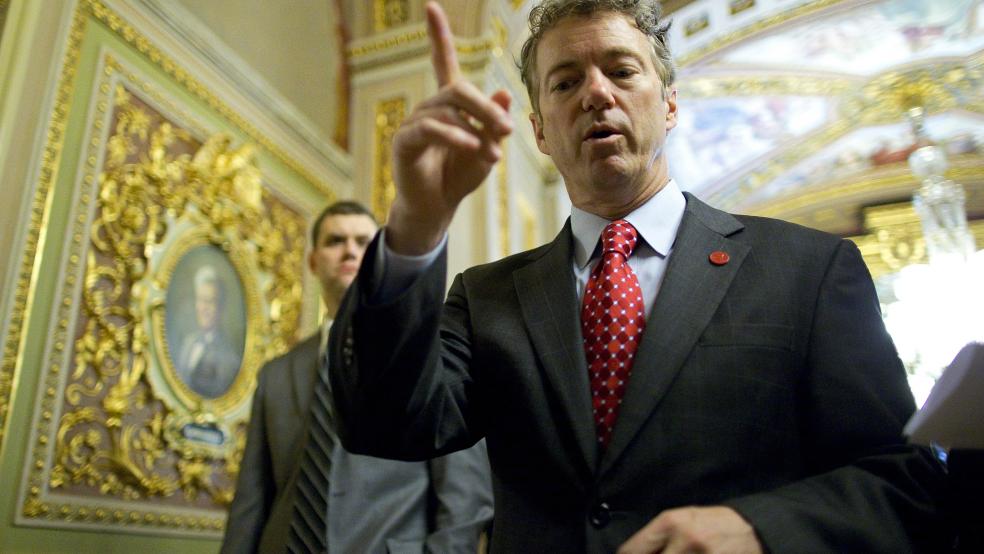In announcing his candidacy for president back in April, freshman Sen. Marco Rubio of Florida did something bold and brash: He said he was giving up his highly valued Senate seat in a gamble that he could snare the 2016 GOP presidential nomination. Rubio’s seat is up for election next year.
Related: Who Will Be the First to Drop out of the GOP Presidential Sweepstakes?
Another ambitious freshman Republican in the Senate, Rand Paul of Kentucky, had other ideas. Rather than giving up his seat, Paul decided to hang onto it as a political security blanket. Because the filing deadline for his seat isn’t until late January 2016, he could potentially reverse course and pursue reelection to the Senate if his presidential campaign fades in the snows of Iowa and New Hampshire.
For good measure, the Tea Party favorite began lobbying Republican party leaders in Kentucky to change the rules to assure that he could mount a dual presidential-senatorial campaign in his home state without running afoul of the rules.
Two other senators are running for president -- Republican Ted Cruz of Texas and Democrat Bernie Sanders of Vermont -- but neither of them are up for reelection in 2016.
For a while it looked as if the wily Paul would pull off this stunt, given his close alliance with Senate Majority Leader Mitch McConnell and other powerful political figures in the Blue Grass State. Paul’s strong ties to the Tea Party and his brash, iconoclastic style dazzled (and intimidated) many in his party and things appeared to be falling into place.
But times have changed. Donald Trump and a raft of other Republican presidential candidates have eclipsed Paul in fundraising and standing in the polls. And just last week, three of Paul’s long-time associates were indicted on corruption charges relating to the 2012 presidential campaign of Paul’s father, former Republican congressman Ron Paul of Texas.
Related: While Trump Whirls and Rages, Cruz Stays the Course
Rand Paul has been vigorously lobbying state GOP leaders in advance of an August 22 decision on whether to rewrite party rules and procedures in order to allow the freshman senator to simultaneously run for president and reelection to Congress, Politico reported on Tuesday. But now a significant number of party leaders are having second thoughts and may not want to go along with the unorthodox approach.
The controversy centers on a Kentucky law that prevents candidates from appearing on the ballot twice. In order to get around that stricture, Paul’s campaign team wants to jettison the state’s May 17 presidential primary and replace it with a March 5 caucus, where party members gather to choose a nominee for the Senate rather than cast votes on a ballot.
However, many state GOP leaders are worried about the disruption that would cause for voters and the added expense of switching from a simple election to a highly complex caucus. Paul has yet to raise money for the caucus effort, according to Politico, and estimates range from as little as $350,000 to as much as $750,000.
“I think it’s fair to say that among members of this committee that they’re always aware of the financial impact of anything new on the organization that they serve,” state GOP chairman Steve Robertson told the news organization. “I think it’s pretty fair to say that members of the committee think this thing could be anywhere from $400,000 to $600,000. That’s obviously something that weighs appropriately on the minds of the folks on the committee.”
Related: The Biggest Obstacle to Rand Paul’s 2016 Campaign
Paul has proven to be highly resourceful in the past, and there’s a good chance he will get his way this time – especially if he comes up with the money. But if the negotiations collapse and the party turns against him, he will be under enormous pressure to bail out of the presidential campaign and try to salvage his Senate seat.





